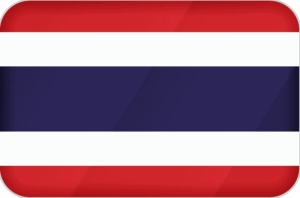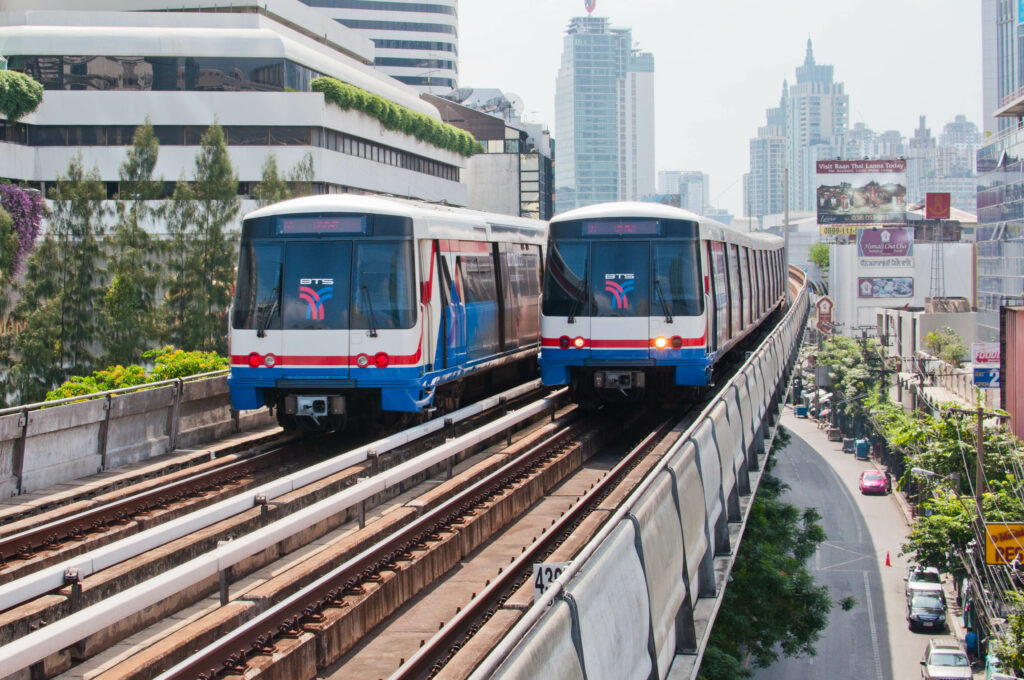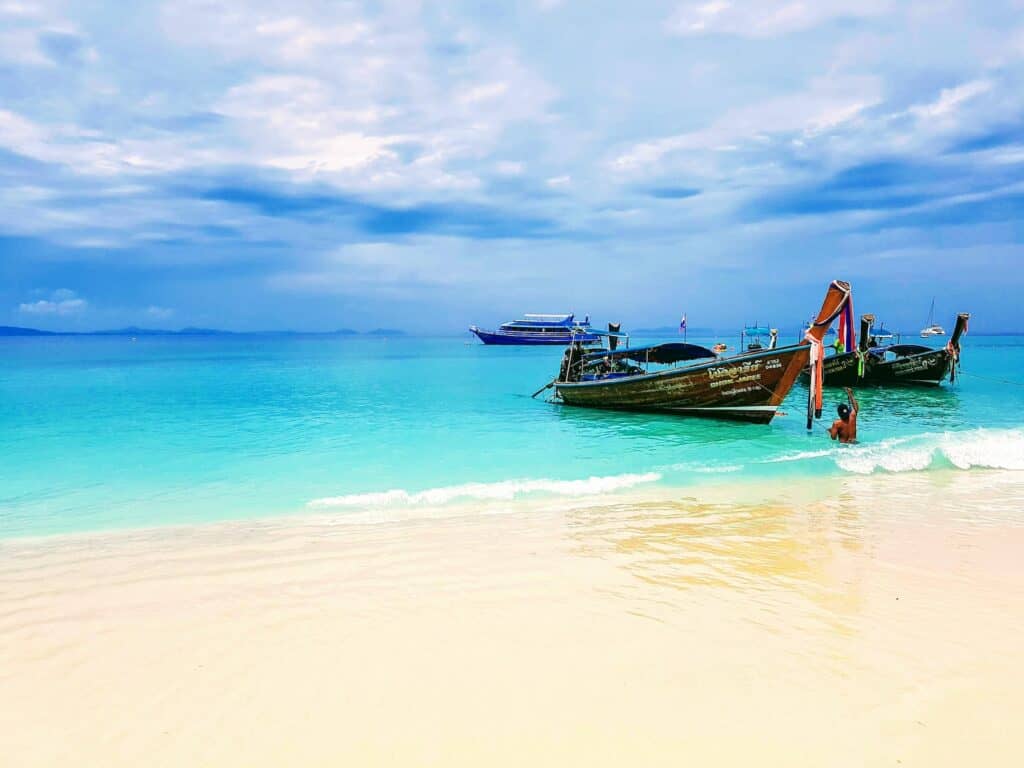Retiring in Thailand can be an exciting and rewarding experience. With its beautiful scenery, low cost of living, and tropical climate it is a great place to spend your retirement years. However, there are many things you need to consider before making the move such as visas & immigration requirements, healthcare options available for retirees, housing considerations and more.
We have put together this guide on retiring in Thailand so that you can make informed decisions about taking up residence here during your golden years. In this guide we will cover all the necessary information needed when considering relocating to retire in Thailand – from understanding the local culture & language through to finding suitable financial resources for expats looking at settling down here long-term.
Finances and Cost of Living
Cost of living in Thailand is relatively low compared to other countries, making it an attractive destination for tourists.
Housing
Accommodation options vary widely depending on the location and budget. For those looking for a more luxurious stay, there are plenty of high-end hotels and resorts available throughout the country. On the other hand, backpackers can find affordable hostels or guesthouses that offer basic amenities at reasonable prices.
Food
Eating out in Thailand is quite inexpensive compared to many western countries. Street food stalls serve up delicious dishes like Pad Thai or Som Tam (green papaya salad) for as little as 40 baht ($1.30 USD). There are also plenty of restaurants serving international cuisine such as Italian, Japanese and Indian food at mid-range prices ranging from 100 – 300 baht ($3 – $10 USD).
Transportation
Public transportation in Thailand is generally very affordable with buses costing around 10 – 20 baht ($0.30 – $0.60 USD) per ride and trains starting from 15 baht ($0.50 USD). Taxis are also reasonably priced but make sure you agree on a price before getting into one since they don’t use meters outside of Bangkok city limits! Motorbikes can be rented cheaply if you have a valid license and feel comfortable driving them through traffic – just remember to wear your helmet!
Living in Thailand is relatively inexpensive compared to other countries, making it a great option for retirees looking to stretch their retirement budget. However, there are also visa and immigration requirements that need to be taken into consideration when planning your move.
Visas & Immigration
Retirement Visa
Requirements for Retirement Visas
The requirements for a Retirement Visa in Thailand are fairly stringent, but they are not intended to prevent genuine residents from residing in the Kingdom. The following are the requirements for obtaining a Retirement Visa or renewing a Retirement Visa Thailand:
The main requirement for the visa is that you be at least 50 years old.
Some financial requirements must also be met, including at least one of the following:
- Maintain at least THB800,000 in a Thai savings or fixed deposit account for a specified period of time, which is currently three months prior to the application. This is three months before the application for a Thailand Retirement Visa Renewal, but it must also be held for three months after. A letter and copies of your bank books will be required to confirm this.
- Alternatively, if you have a monthly income of at least THB65,000, this is acceptable. Please keep in mind that most embassies are now unwilling to issue letters guaranteeing that you receive this level of income in your “home” country, so you may want to consider other methods of proving this. A copy of a year’s worth of bank statements showing the money coming into your account on a regular basis should suffice. It is also important to note that a Thai Retirement Visa holder is NOT permitted to work in the country. It is also possible to have a combination of savings in a Thai bank account and an incoming of not less than THB800,000 per year, with proof required.
Thai Immigration may, in exceptional circumstances, and usually only for a Non-Immigrant O-A visa, request police clearance and a medical certificate before granting the visa.
Health Insurance Requirements for the Thai Retirement Visa
Some new Retirement Visa for Thailand rules have been implemented, requiring new applicants and those renewing their Retirement Visa for Thailand to have mandatory health insurance that covers the duration of their stay in Thailand. The MINIMUM level of coverage required is THB40,000 for outpatient treatment and THB400,000 for inpatient treatment.
Although there was initially an amnesty for those wishing to renew their Retirement Visa in Thailand, it is now being strictly enforced. Local providers such as Pacific Cross, BUPA, and many major insurers offer health insurance. However, this insurance may only be valid until the age of 70, with restrictions on starting ages as well. Expatriate insurance designed specifically for expats frequently allows members to stay in the scheme regardless of age as long as they joined before a certain age, usually 75. Almost no policies will cover pre-existing conditions.
Thailand Elite
For those wanting far less headaches, it’s worth considering the more costly option of the Thailand Elite visa. The lowest cost package for this type of visa is 600,000baht for 5 years or 1m baht for 20 years.
Visas and immigration are important considerations for anyone looking to retire in Thailand. It is important to research the necessary requirements before making any decisions. Now, let’s look at healthcare options available in Thailand for retirees.
Healthcare
Healthcare in Thailand is widely available and generally of a high standard. The country has both public and private healthcare options, with the latter being more expensive but offering better quality care. For retirees, there are several options for medical coverage depending on their circumstances.
Public Healthcare
Public hospitals in Thailand are usually well-equipped and staffed by experienced doctors who speak English. However, they can be overcrowded so it’s important to plan ahead if you need medical attention. Most treatments are free or heavily subsidized for Thai citizens, though foreigners may have to pay full price for some services.
Private Healthcare
Private hospitals offer higher quality care than public ones but come at a cost – expect to pay up to three times as much as you would at a public hospital for similar treatments. Private clinics also provide excellent service and tend to be less crowded than hospitals; however, they don’t always accept insurance plans from abroad so check before making an appointment if that’s your preferred option.
Insurance Plans
If you plan on staying in Thailand long-term then it might be worth investing in an international health insurance policy which covers all necessary treatments including emergency evacuation if needed (which can get very expensive). There are also local policies available which will cover most basic needs such as doctor visits and medication costs; however these do not typically include coverage outside of Thailand so make sure you read the fine print carefully before signing up!
Retirement communities throughout Thailand offer comprehensive healthcare packages which include access to private clinics or hospitals within the community itself as well as discounts on medications and other services related to elderly care such as physiotherapy or home nursing visits when needed. These packages vary greatly between different communities, so it is important to research thoroughly before committing financially.
Healthcare in Thailand is excellent, with world-class hospitals and a comprehensive network of medical facilities. With this in mind, it’s time to explore the housing options available for retirees looking to make Thailand their home.
Housing
Housing in Thailand is varied and plentiful, with something to suit every budget. From apartments to houses, there are plenty of options for those looking for a place to stay while visiting or living in the country.
Apartments
Apartment buildings can be found throughout Thailand, ranging from basic units to luxury high-rises. Most apartments come fully furnished and include amenities such as air conditioning, cable TV, internet access and more. Prices vary depending on location and size but generally start at around 5,000 baht ($150 USD) per month for a small studio apartment in an average area.
Houses
For those looking for more space or privacy than an apartment can offer, renting a house may be the way to go. Houses range from simple one-bedroom bungalows up to large villas with multiple bedrooms and bathrooms. Prices depend on size and location but typically start at around 10,000 baht ($300 USD) per month for a one bedroom house in an average area.
Retirement Communities
There are several retirement communities located throughout Thailand that cater specifically towards expats who want to enjoy their golden years abroad without sacrificing comfort or convenience. These communities often provide services such as transportation assistance, medical care facilities and recreational activities like golf courses or swimming pools – all within close proximity of each other so residents don’t have far to travel when they need something! Prices vary depending on the community but generally start at around 25-30 thousand baht ($750-$900 USD) per month for single occupancy accommodation with shared common areas like dining rooms or lounges included in the cost of rent.
Housing costs in this country are generally lower than those of many other countries, largely due to the lower wages. This keeps rental prices low regardless of whether one chooses an apartment building or a retirement community, making it easier for tourists and retirees alike to find affordable accommodations during their stay.
From high-end luxury apartments to affordable condos, Thailand offers a variety of housing options for retirees.
Culture & Language Issues
Thailand is a culturally rich country with its own unique language, customs and traditions. The official language of Thailand is Thai, which has its own alphabet and writing system. It can be difficult to learn for non-native speakers, but there are many resources available to help you get started.
The culture in Thailand is heavily influenced by Buddhism, which forms the basis of much of the country’s social norms and values. Respect for elders and family ties are highly valued in Thai society, as well as politeness and humility when interacting with others. Greetings often involve bowing or waiing (a gesture where both hands are placed together at chest level).
It’s important to remember that Thais place great importance on saving face – so it’s best not to lose your temper or show disrespect towards anyone while visiting the country. Additionally, public displays of affection should be avoided as they may cause offense among locals who tend to be more conservative than westerners when it comes to such matters.
When communicating with locals in Thailand it’s always polite to use formal titles such as ‘Khun’ (for men) or ‘Ka’ (for women). This shows respect for their age and status within society – something that will likely go down very well! Learning some basic phrases like ‘hello’, ‘thank you’ etc., will also come in handy during your stay here too!
Finally, dress code should also be taken into consideration when travelling around Thailand; modest clothing should always be worn out of respect for local customs – especially if visiting religious sites like temples or shrines where shorts and skirts above knee length must not be worn at any time.
Understanding the culture and language of Thailand is essential for a successful retirement, but it’s also important to consider legal considerations. We’ll explore more below.
Leisure Activities for Retirees in Thailand
There are many leisure activities that retirees in Thailand can enjoy, including:
Beach activities
Thailand is home to many beautiful beaches, such as those found on the islands of Phuket and Koh Samui. Retirees can enjoy water sports, such as snorkeling and scuba diving, or simply relax on the beach and take in the scenery.
Cultural attractions
Thailand is a country with a rich cultural heritage, and there are many temples and historical sites to visit, such as Wat Phra Kaew and the Grand Palace. Retirees can also experience traditional cultural performances, such as Thai dancing and Muay Thai boxing, or explore the markets and shopping districts, such as Chatuchak Weekend Market and the Floating Markets.
Outdoor activities
Thailand has many national parks and nature reserves, such as Khao Yai National Park and Chiang Mai’s Doi Inthanon National Park, which offer opportunities for trekking and hiking. Retirees can also enjoy golfing or other sporting activities at facilities throughout the country.
Dining and entertainment
Thailand is known for its delicious cuisine, and there are many restaurants and cafes offering a range of local and international dishes. Retirees can also enjoy live music and other entertainment options, such as cinema and theater.
Spa and wellness
Thailand is also renowned for its spa and wellness offerings, and there are many spas and resorts offering massages, yoga classes, and other relaxation and wellness treatments.
Overall, Thailand offers a diverse range of leisure activities for retirees, from cultural and outdoor pursuits to dining and entertainment options.
Legal considerations
When considering retiring in Thailand, it is important to understand the legal requirements and procedures. It is best to consult with a lawyer or an accountant who specializes in Thai law before making any decisions about property ownership or taxes.
Property Ownership
Foreigners are not allowed to own land in Thailand, but they can purchase condos and apartments as long as the majority of units in the building are owned by Thais. There are also other options for foreigners looking to invest in real estate such as setting up a Thai company that owns the property on behalf of its foreign shareholders.
Taxes
Taxation laws vary depending on whether you’re a resident or non-resident, so it’s important to familiarize yourself with them before deciding where you want to live permanently. Non-residents must pay income tax at 20% for all income earned outside of Thailand while residents may be eligible for certain deductions if their total annual income exceeds 150,000 baht (approximately $4,800). Additionally, capital gains tax applies when selling properties within five years of purchase date and inheritance tax may apply when inheriting assets from family members who have passed away.
Thai Bank Accounts
When it comes to finances , opening up a Thai bank account is recommended if possible since this will allow easier access money transfers between countries without incurring high fees associated with international transactions .
It is always advisable to research thoroughly before making any decisions regarding retirement abroad. Consulting professionals specializing in international law will help ensure that everything goes smoothly throughout your transition process.
It is important to understand the legal considerations for retiring in Thailand before making any final decisions. With that knowledge, you can move on to gathering tips and resources for a successful retirement in this beautiful country.
FAQs in Relation to How to Retire in Thailand
How much money do you need to retire in Thailand?
Retiring in Thailand is possible with a modest budget. Depending on your lifestyle, you could retire comfortably with as little as $1,500 per month. This amount would cover basic living expenses such as rent and utilities, food costs, transportation fees and health insurance premiums. To enjoy a more luxurious retirement lifestyle in Thailand you should plan to have at least $2,000-$3,000 available each month for spending money. With this budget you can afford to explore the country’s many attractions and take advantage of its excellent healthcare system.
How much does it cost to get a retirement visa in Thailand?
Retirement visas in Thailand are available to foreign nationals aged 50 and over. The cost of a retirement visa depends on the length of stay and type of visa you require. A one-year Non-Immigrant O-A (Long Stay) Visa costs approximately 10,400 baht ($330 USD). This fee includes the 1,900 baht application fee plus 8,500 baht for the actual visa. If you wish to extend your stay beyond one year, an additional 5,000 baht must be paid every year. You will also need to provide proof that you have at least 800,000 baht in a Thai bank account or can show income from abroad of at least 65,000 baht per month before applying for this type of visa.
Can I live in Thailand permanently?
No, it is not possible to live in Thailand permanently. The Thai government has strict regulations regarding foreign citizens living and working in the country. A non-immigrant visa may be obtained for a period of up to one year, but must be renewed annually. Permanent residency status is available only under certain conditions such as marriage or investment in a business venture. It is also important to note that all foreigners must obtain permission from the Immigration Bureau before leaving Thailand.
How much money do you need to live comfortably in Thailand?
The cost of living in Thailand depends on your lifestyle and where you choose to live. Generally, a budget of around 25,000-30,000 baht per month (approximately $800-$1000 USD) should be enough for a comfortable life. This includes rent for an apartment or house, food costs, transportation expenses and other basic necessities. If you plan to travel frequently or indulge in luxury items such as high-end restaurants and shopping sprees then the cost may increase significantly. Ultimately, it depends on your lifestyle and spending habits.
Conclusion
With proper planning and research, you can make sure that your retirement is both comfortable and secure. Visas & Immigration, Healthcare, Housing, Retirement Communities, Finances, Culture & Language and Legal Considerations are all important factors to consider when retiring in Thailand. It’s important to do your due diligence so that you understand all the details before making any decisions about where to retire. By doing so, you’ll be able to ensure that your retirement experience in Thailand is as enjoyable as possible!
Are you ready to retire in Thailand? With its stunning beaches, vibrant culture and exotic cuisine, this is the perfect place for a relaxed lifestyle. Let us help guide you on your journey to retirement with our comprehensive travel, activities and accommodation guide for holidays in Thailand. From finding the right place to stay that fits your budget to exploring all of what this beautiful country has to offer – we can provide everything you need! Start planning today and make your dream retirement a reality.





1 comment
jose antonio cardenas davila
buenos dias
me jubilo en 15 meses mi mi pension rondara los 1000 euros pero no tengo problema para depositar en el banco los 800000 baht que solicitan y podria recibir todos los meses tranferencia aparte de 600 euros donde puedo solicitar ayuda para todos los tramites de estancia como jubilado tambien contrataria con algun seguro medico una poliza que me cubra todo para estar cubierto mi intencion es vivir en tahilandia aproximadamente 10 años gracias